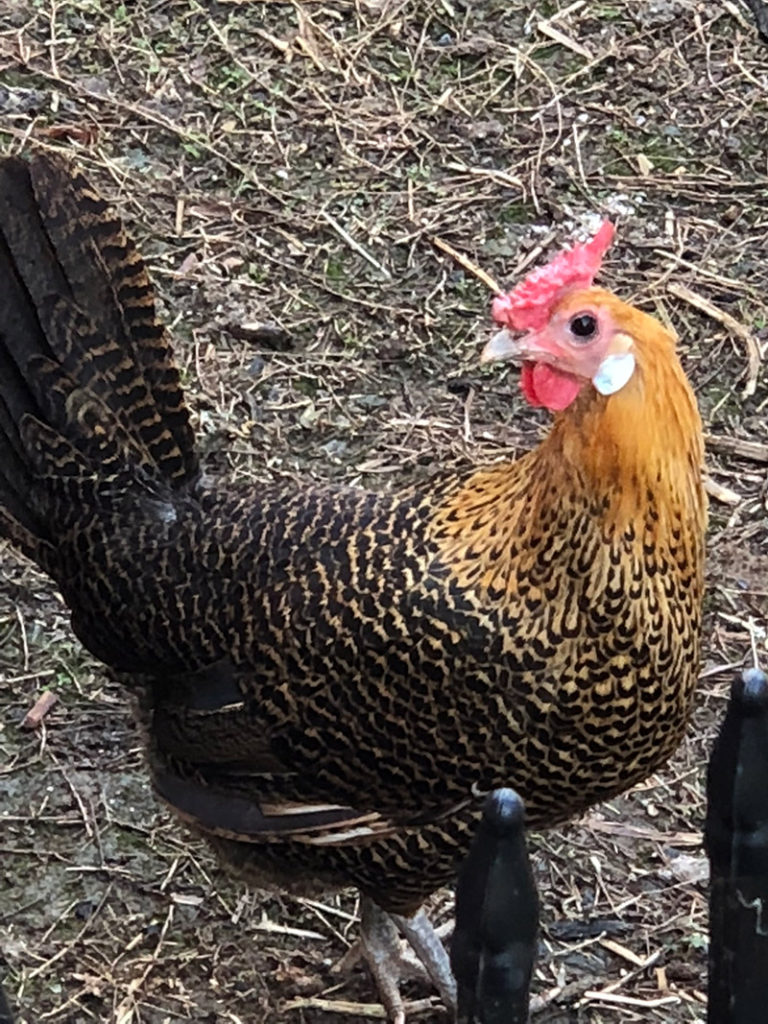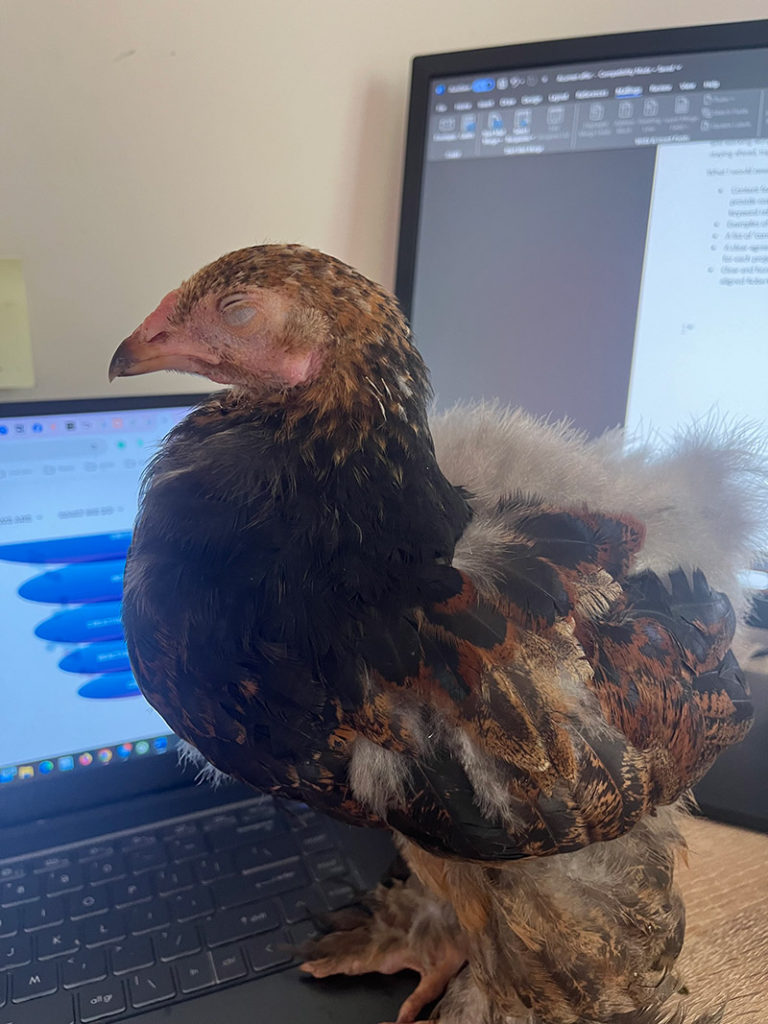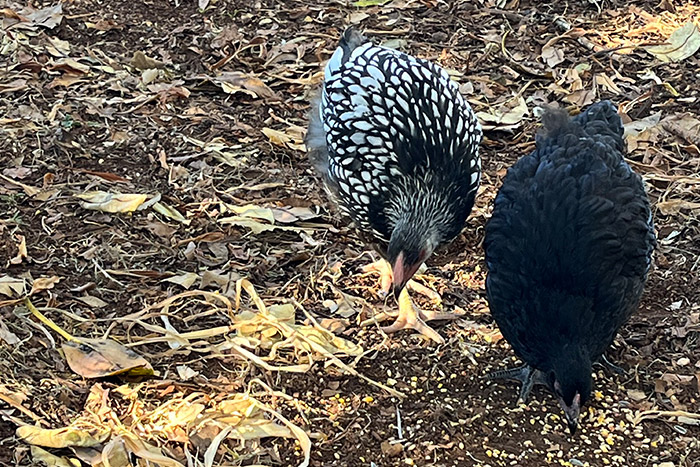Keeping chickens is a rewarding experience that offers more than just fresh eggs. These feathered friends can be delightful pets, providing companionship and joy to any property or backyard. Let’s explore the benefits of keeping chickens for their companionship and eggs, address common health issues, and offer tips on keeping them safe at night.
I have kept chooks in the suburbs and on properties and as long as you comply with your local councils regulations, ie no rooster in the suburbs and it is still one of my favourite things to do. I will never discuss raising chickens for meat, so sorry if that’s what you were hoping to learn here, but I can certainly assist with housing, egg laying, health etc.
I have lost many an hour just sitting and watching my chickens interact with their world. Watching the friendships develop when we add new chooks to the flock, yes this is a thing and if you haven’t noticed it, you aren’t taking enough time to enjoy your chickens.
Learning what different chooks favourite foods are or where they like to lay their eggs, is part of caring for them and enjoying them. I couldn’t imagine having chickens that don’t have names and don’t come running when they see me.
It’s the small things, the stolen 15 minutes spent watching them having a dust bath. Or observing a sweet moment between two new chickens as they meet and decide they like each other. The moments when those two friends get separated and then find each other again. Have you noticed how much they snuggle and share a moment when this happens?
Having chooks isn’t just about the convenience and value of fresh eggs, it’s those precious little moments that bring pure joy to my heart!


Benefits of Keeping Chickens
1. Fresh Eggs: One of the most obvious benefits of keeping chickens is the supply of fresh, nutritious eggs. Home-raised chicken eggs are often richer in flavour and nutrients compared to store-bought ones, thanks to the chickens’ natural diet and lifestyle. But I have to say, don’t be fooled into thinking it’s a cheaper option. If you fall in love with your chooks you will want to spoil them with high quality food and treats. Freeze dried meal worms are a staple in our younger chooks diets and nothing but the best mash for our little darlings. Plus an abundance of fresh chopped fruit and veg for breakfast each day. Gary often jokes about the true cost of our eggs, to which I reply, ‘how do you put a price on unconditional love and true happiness!”
2. Natural Pest Control: Chickens help control pests in your garden by eating insects, weeds, and even small rodents. Their foraging habits can significantly reduce your need for chemical pest control. My chickens are remarkable at seeking out and eating all nature of pests like snails, moths, caterpillars, you name it they’ll catch and eat it. This even goes as far as the occasional mouse, they are efficient killers and will eat a mouse in a matter of seconds!
3. Compost and Fertilizer: Chicken manure is an excellent fertilizer for your garden, rich in nitrogen, phosphorus, and potassium. Their scratching also helps in composting and aerating the soil. I will often let them loose in an area I’ve picked for my next veggie bed and let them clear and till the soil for me. First the chickens, then the pigs then the veggies! Brilliant system if you ask me!!
4. Companionship and Entertainment: Chickens have unique personalities and are incredibly sociable. I’ve already talked about this, but I have many experiences of chooks letting themselves into the house to come and hang out on a hot day or to find a quiet spot to nap or lay an egg. This often includes behind the fireplace, under a bed or in a cupboard conveniently left open! We have a Rooster that enjoys sitting on my lap while I’m working at my desk and having a quiet doze. Given the chance a chicken will become a sweet loyal friend and provide tasty eggs whether you like it or not!
Health issues in Chickens
Like all farm animals, chickens require care, and having a good understanding of animal husbandry when it comes to chickens will put you in good standing to have long-lived, happy, healthy, and productive flocks. Whilst they don’t lay eggs anymore our oldest girls have just turned 10 and are thoroughly enjoying their retirement here on Saddleback Farm!
Here’s just a few of the problems that can arise when you keep chickens

- Parasites: Chickens can suffer from parasites like mites, lice, and worms. Regular checks and maintaining cleanliness in the coop are essential to prevent infestations. This will vary depending on your climate and living conditions. We are in the subtropics and in the wet season mites become a serious problem. We dust our chickens and their bedding once a week during peak mite breeding time and this seems to keep it under control. Chickens will also have a dust bath each day given the chance, so make sure they have access to an area of dry dirt, under your house, in a paddock or around a shed or barn as this is their way of controlling the parasites. You can also provide wood ash for them to dry bathe in if you have any as this is a proven natural way to help with chicken mites. Some people recommend oiling their legs and perches with vegetable oil, but to be honest we’ve never had luck with this idea. And of course there is the standard medicated chicken mite powder. Most of them don’t require a withholding period on eggs for human consumption, but you can choose what you do there.
This is an area you will have to decide where you are most comfortable, natural treatments or medicated powders, there are pro’s and con’s to both. My primary focus is the comfort and health of my birds, so if the infestation is really bad after a particularly wet and warm month, I will opt for the fast acting medicated powder and then revert back to natural options once we’ve got it under control again. If you’ve ever had even a few mites on your skin, you will know how uncomfortable it can be, I wouldn’t want to delay relief for my chooks when they are dependant on me for their comfort and health.
- Respiratory Problems: Dust, ammonia buildup, or poor ventilation in the coop can lead to respiratory issues. Ensure the coop is well-ventilated and clean. We have been fortunate with our flocks that this hasn’t been a problem for us, but I’ve known friends who have a constant and often heartbreaking battle with respiratory problems. We air our coops and clean them often and are in an area where there is always the chance of breezes to help freshen things up. We never over crowd our coops and chicken bedrooms and so far, so good. But if you find your chickens starting to wheeze or cough and have runny noses and eyes, don’t waste time, isolate that bird and get a broad-spectrum antibiotic into their crop as soon as possible. Chickens can get a Chronic respiratory disease (CRD) and is an awful thing for them to have to deal with. Symptoms are weepy eyes, head shaking and gurgling. If you are using antibiotics I would recommend withholding egg consumption.
For more information on respiratory diseases in chickens check out these guys, https://www.bird-vet.com/ChickenVet-ChronicRespiratoryDisease-CRD.aspx you should know what to look for.
- Egg-laying Issues: Problems like egg binding or soft-shelled eggs can occur. Providing a balanced diet rich in calcium and monitoring the health of your hens are crucial steps to prevent these issues. If you find one of your hens has become egg bound, the fastest and safest way to overcome this problem is to soak her in a warm Epsom salt bath. Make the water tepid which she will find soothing and about 3 inches deep. Get comfortable because you will need to hold her in there for around 20 minutes. You can also gently massage her abdomen to relax her muscles to help with the process but be careful to avoid breaking the egg in her.
I don’t imagine it’s easy to lay an egg every day and she might just need some help sometimes. If the first soak doesn’t do the trick, try to keep her isolated and repeat it a couple of times over a 6-hour period. She won’t protest too much, and I guarantee she will appreciate it ultimately.
If your chickens are producing soft shell eggs, this is a simple fix by adding shell grit to their feed. The calcium in their feed is often not enough to fix this problem, so I always add shell grit to their feed a couple of times a week.
- Predator Attacks: Chickens are vulnerable to predators like foxes, raccoons, and birds of prey. Secure housing is vital to protect them, especially at night.
- Secure Housing: Your chicken coop should be sturdy and secure to protect against predators. Ensure there are no gaps or weak points where predators could enter. Unfortunately, we have too many tales of tragedy living in the country and backing on to national park as we do. We are the perfect environment for just about every predator Australia can throw at us, from carpet pythons to foxes, dingoes and wedge tailed eagles. We do everything possible to secure our chickens bedrooms at night, but we’ve seen foxes pick of a hen in the middle of the day right in front of us. We avoid white chickens these days as they are way too easy for predator birds to spot and swoop on. I wish I’d had my camera to hand the day a massive Wedge Tailed Eagle swooped down and picked up our white girl. Luckily, I was close enough to yell and flap my arms, so looking like a crazy banshee I managed to get the wedgie to drop my hen and move on. Incredibly she picked herself up, shook herself off and went about her business! We’ve had times when we’ve opened the chooks bedroom only to find a very contented and fat python sleeping in the corner and us minus one hen. That was a heartbreaking experience because she was just adorable. But even worse was the fact that the rest of the flock that slept in that coop were traumatised for days afterwards and our young Rooster at the time lost an eye trying to defend her. My once utopic image of farm life went from ‘Darling buds of May’ to ‘Survivor’ quickly after that. I honestly had no idea there were so many things that would want to eat, bite, sting and attack my farm animals and birds.
- Elevate the Coop: Keeping the coop off the ground can deter some predators and provide an extra layer of security. This isn’t going to make any difference with some predators like snakes, but can be a deterrent for foxes.
- Use Locks: We don’t have to worry about clever predators like Raccoons here in Queensland Australia, so simple latches are probably enough to keep out the likes of foxes and snakes. But if you are places that have clever predators like Raccoons and Stoats or weasels, you would be advised to use predator proof locks or heavy-duty latches on your coop doors.
- Install Fencing: A fenced run or chicken wire around the coop can provide additional protection. Burying the wire into the ground can prevent digging predators from getting in. We have a simple enclosure around the coop for the days when we need to keep them secure, ie we are away for the day or a friend is visiting with a dog that we don’t know and don’t want to risk our feathered friends to a dog with an unmanaged prey drive. This also helps when we are introducing new hens to the flock and want them to learn where to lay their eggs. Its never fun playing ‘find the egg’ if they get adventurous with where they lay!
- Nighttime Routine: And finally establish a routine to ensure your chickens are safely inside their coop before dusk when predators are most active.
- Nighttime Routine: And finally establish a routine to ensure your chickens are safely inside their coop before dusk when predators are most active.
If your game, keeping chickens can be a delightful and beneficial addition to your lifestyle. Not only do they provide fresh eggs and companionship, but they also contribute to the health of your garden. Remember, the key to successful chicken keeping is informed care, attention to their needs, and preventive measures to protect them from potential threats. With these practices in place, you can enjoy the numerous benefits these charming creatures bring to your life.
Until next time,
Lucy

